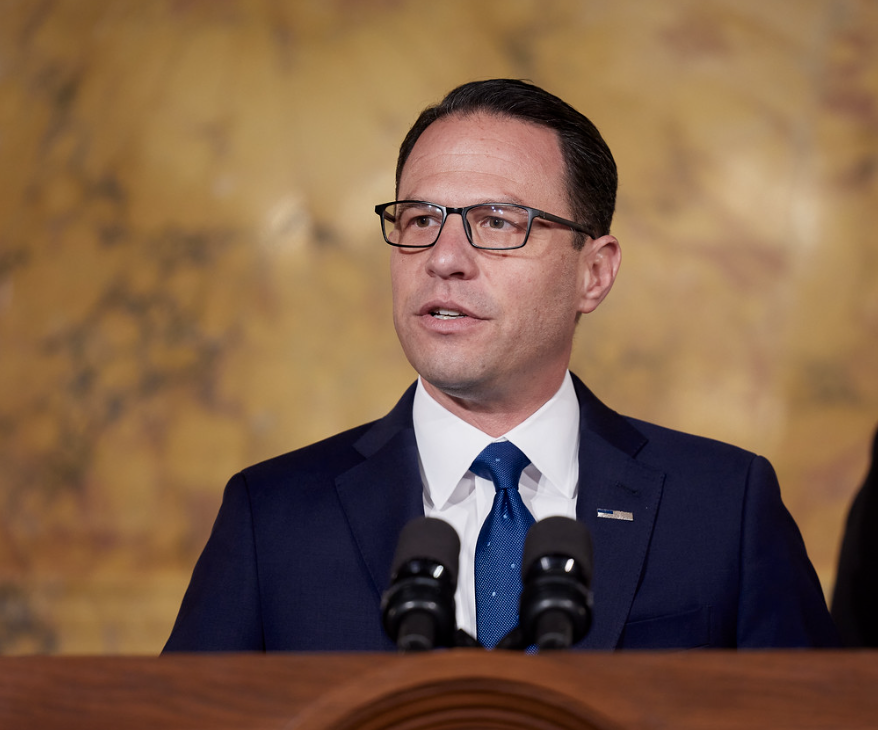Shapiro to Appeal RGGI Decision

Gov. Josh Shapiro is appealing the Commonwealth Court’s recent decision striking down Pennsylvania’s bid to join the Regional Greenhouse Gas Initiative (RGGI).
The court said Gov. Tom Wolf (D) created an “invalid tax” in 2022 when he issued an executive order pushing the state into the RGGI without legislative approval. It is a multi-state carbon cap-and-trade plan designed to reduce carbon emissions by forcing energy producers to buy credits to generate electricity. Entering the compact was a top priority for Wolf, who vetoed a bill that would have required the state’s legislature to approve entering the RGGI.
“As I have said since January, Gov. Shapiro had the ability to rescind the $600 million RGGI energy tax, but he chose not to,” said Rep. Seth Grove (R-York), chairman of the House Appropriations Committee. “This cap-and-trade RGGI tax scheme will result in job losses in Pennsylvania while at the same time raising the price of energy. It’s a lose/lose for Pennsylvania. Shapiro must be doing this to appease his radical leftist base or attempt to score political points nationally because it doesn’t benefit Pennsylvanians.”
Shapiro’s office said he is appealing the decision to protect the principle of executive authority.
“The Commonwealth Court’s decision on RGGI – put in place by the prior administration – was limited to questions of executive authority, and our administration must appeal in order to protect that important authority for this Administration and all future governors,” said Shapiro’s spokesman Manuel Bonder.
“The governor stands ready and willing to implement the recommendations of the RGGI Working Group, and he would sign legislation replacing RGGI with a Pennsylvania-based or PJM-wide cap-and-invest program, as they proposed.
“Should legislative leaders choose to engage in constructive dialogue, the governor is confident we can agree on a stronger alternative to RGGI. If they take their ball and go home, they will be making a choice not to advance commonsense energy policy that protects jobs, the environment, and consumers in Pennsylvania,” Bonder added.
“We urge Republican and Democratic leadership to join us at the productive table the Governor has set with labor, environmental advocates, energy producers, and consumer advocates to further a commonsense energy policy that moves our Commonwealth forward. Now is the time for action. Inaction is not an acceptable alternative,” Bonder concluded.
But Grove was skeptical.
“Keep taxes on energy producers low and keep taxes on energy consumers lower. If he can’t agree to this, we know where his priorities lie,” said Grove.
Critics privately told DVJournal they don’t believe Shapiro’s decision to announce the move late on the Tuesday before the long Thanksgiving holiday weekend was a coincidence.
“He ran as a moderate, but he doesn’t want to govern that way,” one political insider said.
Free market groups have also condemned Shapiro’s move.
“Shapiro’s decision to appeal the Commonwealth Court’s ruling on RGGI is a massive mistake,” said Commonwealth Foundation Senior Vice President Nathan Benefield. “The move threatens the well-being of working families and raises enormous questions about Shapiro’s governing priorities. Right before Thanksgiving, Shapiro proclaimed his desire to fight for the unilateral authority to raise electricity taxes. It’s a move that could burden Pennsylvanians with higher taxes and electricity bills and undermine the reliability of our electrical grid.”
Americans for Prosperity (AFP) Pennsylvania Deputy State Director Emily Greene posted on social media that she was disappointed because it seemingly ignored higher energy costs. She said thousands of Pennsylvanians see larger energy bills as their top reasons to “turn out to vote” in 2024.
Energy and manufacturing groups panned Shapiro’s suit, as well. The Oil & Gas Workers Association accused Shapiro of breaking his campaign promises. It also called RGGI “jobs-killing” for the Keystone State. Pennsylvania Manufacturers posted a gif of Marlon Brando from “The Godfather” with the quote, “I’m gonna make him an offer he can’t refuse.”
Power, PA Jobs Alliance, took the criticism a step further by saying Shapiro’s decision was troubling and also “anti-worker, anti-family energy policy” that mimics Wolf.
“This message also shakes industry confidence and is a bar to new investment in reliable fossil-fueled assets and the maintenance and expansion of generation-related jobs in the Commonwealth of Pennsylvania,” the group said in a statement. It also criticized Shapiro for prodding the legislature because of its ongoing budget stalemate. “The result, of course, is that taxpayers will continue to bear the tremendous costs of this litigation, and Pennsylvania’s workers and families will have to continue to live with the uncertainty surrounding the ongoing, existential threat of the RGGI carbon tax.”
As for the Shapiro administration’s portrayal of the appeal as an attempt to hold onto executive power and bring the state legislature together to come up with an RGGI solution, Benefield scoffed on social media. “If the governor just wanted to work with the legislature, there’s no need to sue for executive authority.”



